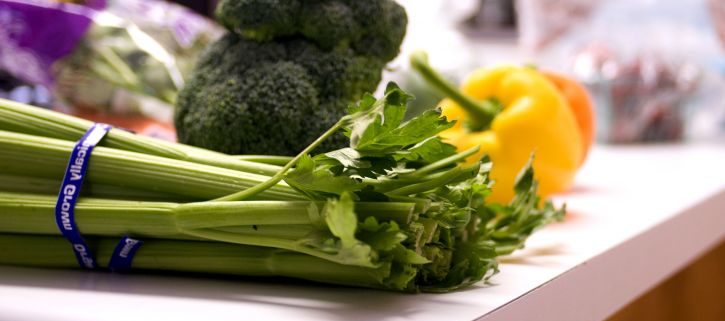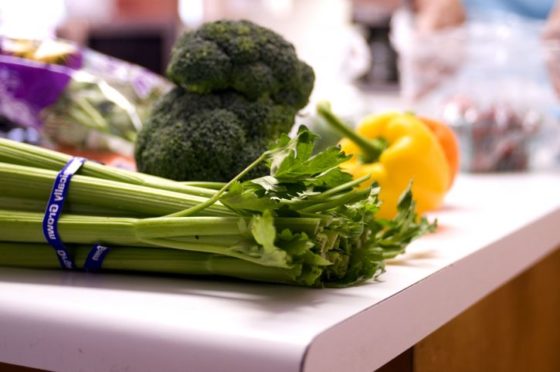What Not To Eat When Breastfeeding
By the time your little one is born, you’ve already gone through 40 weeks of dietary restrictions. No alcohol, no caffeine, and no sushi, to name just a few. So after you’ve delivered, are you home free? Back to your morning cup of joe? If you’re using formula, then sure! If you’re breastfeeding, on the other hand, you’re not quite out of the dietary woods. Lots of what you eat can get into your breast milk and get passed to the baby and some of those foods can be dangerous. So, here’s what not to eat when breastfeeding:
Contents
1. Allergenic Foods
Food allergies are extremely common – peanuts, shellfish, milk, wheat, soy, corn, dairy, eggs, and more. If you or anyone else in your family has food allergies, your little one is much more likely to have them, too. You could go the extra-cautious route and avoid major allergens altogether, but it’s not easy to completely cut all of those things out of your diet. And lots of them are included in other foods (especially eggs, dairy, and wheat) and may be difficult to watch out for.
Even if you’re not allergic to a specific allergen, your baby might be. If you notice that your little one is fussy, colicky, crying inconsolably, vomiting, or passing bloody stools, that might be a sign of a food allergy. One way to track down the problem is to keep a detailed food journal along with notes about how the baby reacted. For example, you may notice that the worst problems happen after you eat a peanut butter and jelly sandwich or a pot of mussels. Then, try cutting those foods out of your diet for a few weeks to see if that solves the problem.
You may also take your baby to the doctor to test for specific allergies if you’re having trouble pinpointing the foods that seem to be irritating the baby.
2. Foods That Cause Gas Or Digestive Irritation
You know how unpleasant it is to suffer from gas or heartburn and your little one is susceptible to the same problems. Certain foods can pass into your breast milk and cause gas and other gastrointestinal symptoms that can make the baby uncomfortable and fussy. Broccoli is one of the most common culprits. If your little one is gassy, burping too much, or fussy, consider cutting back on broccoli, cauliflower, beans, Brussels sprouts, asparagus, and other gas-causing vegetables. You don’t necessarily have to cut them out completely – those foods are healthy and may be an important part of your diet. Just be mindful of how your little one is reacting and try to keep your intake at a level that doesn’t cause discomfort.
Just like gassy foods can cause an upset stomach, spicy foods can be hard on your little one. If you’re eating lots of jalapenos, vindaloo, or other spicy foods, those spicy compounds can pass into your breast milk and give it a bit of a kick. Not every baby is affected by spicy foods, so keep an eye out for fussiness after you eat something fiery. If baby seems happy, feel free to pile on the hot sauce!
Citrus fruits are another common culprit for stomach irritation in babies. The acidity and sugars, along with certain other compounds, can upset a baby’s immature digestive tract and cause fussiness and irritation. You may need to replace the citrus in your diet with other foods rich in vitamin C, like bell peppers, kiwi, papaya, berries, and dark leafy greens.
3. Garlic
Potential bad news for lovers of Italian food: eating a lot of garlic can actually impart that flavor to your breast milk. Some babies don’t like the flavor and may balk at feeding time or may not be eating enough. As with the other foods on this list, just keep an eye out for your little one’s reaction after you enjoy a slice of garlic bread.
4. Caffeine
Caffeine doesn’t just affect your little one through pregnancy. It also passes into your breast milk. Babies process caffeine differently than adults, which means a small amount of caffeine for you can be a big jolt for your little one. It can cause irritability, crankiness, and trouble sleeping – and the last thing you need as a new parent is a baby that can’t sleep!
Coffee is usually the first thing that comes to mind when we think of sources of caffeine, but it’s hardly the only one. You also get caffeine in sodas, chocolate, and some kinds of tea. You may be able to have small amounts of caffeine without affecting your baby, but as always, be mindful of how your little one reacts after you have a chocolate bar or a cup of tea.
5. Fish
For the same reason sushi was off-limits during pregnancy, it can be a problem while you’re breastfeeding. Fish that are high on the food chain – think salmon, tuna, and swordfish – tend to have a concentration of mercury and other toxins that can affect your baby’s development. Of course, fish also has a lot of omega-3 fatty acids and other compounds that are good for you. Just avoid raw fish and stick to fish with low mercury content.
6. Fatty Meats
In the same way that certain fish concentrate mercury, the fatty parts of meat concentrate toxins like pesticides from the environment. Even in humans, those toxins get stored in our fat tissues. Those toxins can make it into your breast milk and cause developmental problems for your baby. Lean cuts are safer (and better for you). It’s not always doable, but you may want to look into the farming practices of the sources of your meat to try to find options that will expose you and your baby to fewer toxins.
7. Peppermint And Parsley
These herbs won’t actually bother your baby’s stomach, but they can affect your milk supply. In fact, they’re often used as a way to naturally decrease milk production during weaning. If you take dietary supplements, be sure to check to make sure that they don’t contain serious amounts of peppermint or parsley. You’ll be fine with the occasional spring of parsley with your dinner or the occasional cup of peppermint tea, but you’ll want to avoid large quantities.
What Not To Eat While Breastfeeding
The list can seem kind of overwhelming, but the good news is that most moms won’t have to avoid all of these foods. Caffeine, high-mercury fish, fatty meat, and peppermint and parsley are worth avoiding no matter what, but the others will depend on your family history of allergies and what your baby prefers. You may find that your little one loves spice and garlic as much as you do! The trick is to pay attention to baby’s reactions and if you notice gastrointestinal problems, keep a food journal to pinpoint the problem.
As always, you should contact your doctor when in doubt to determine whether the problem is something being passed through your breast milk or some other cause.
What foods did your little one like during breastfeeding? What foods were off limits? Let us know in the comments!









Leave a Reply
Want to join the discussion?Feel free to contribute!